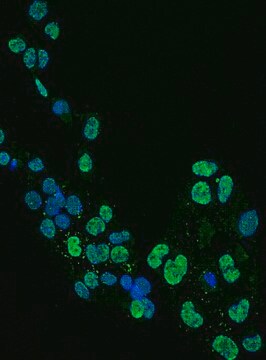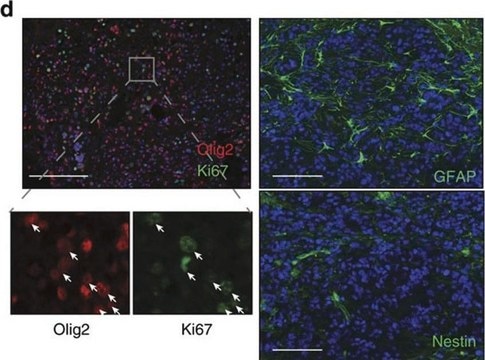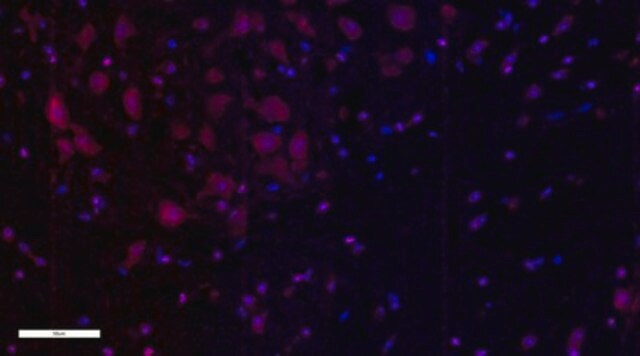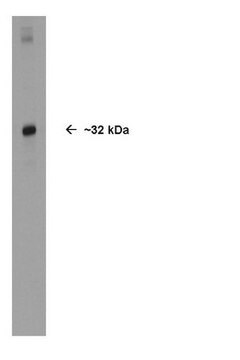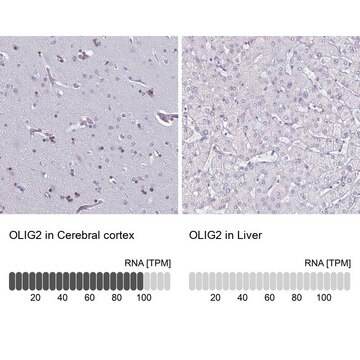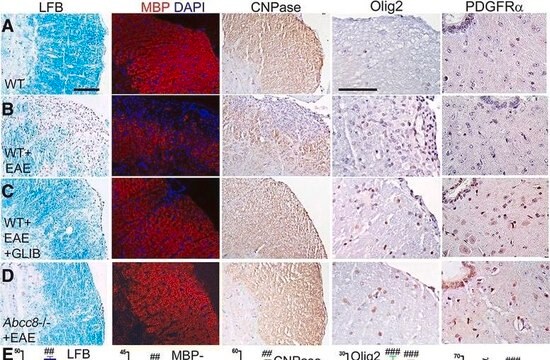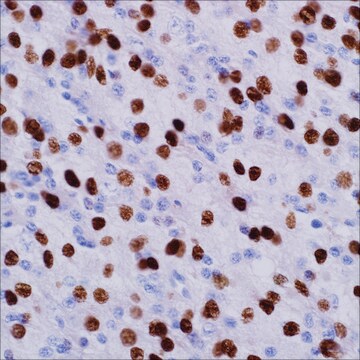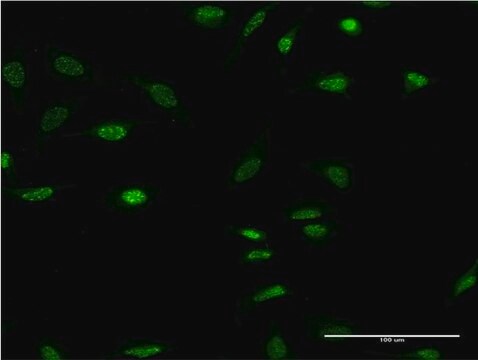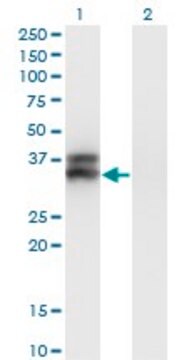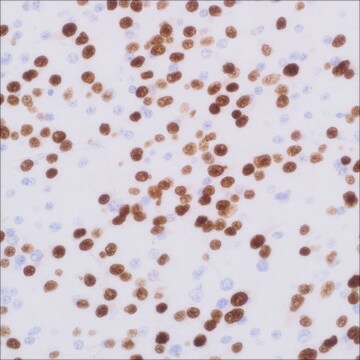ABN899
Anti-Olig-2 Antibody
from rabbit, purified by affinity chromatography
Synonyme(s) :
Oligodendrocyte transcription factor 2, bHLHe19, Olg-2, Oligo2, RACK17, RK17
About This Item
Produits recommandés
Source biologique
rabbit
Niveau de qualité
Forme d'anticorps
affinity isolated antibody
Type de produit anticorps
primary antibodies
Clone
polyclonal
Produit purifié par
affinity chromatography
Espèces réactives
mouse, rat, human
Technique(s)
immunocytochemistry: suitable
immunohistochemistry: suitable (paraffin)
immunoprecipitation (IP): suitable
western blot: suitable
Numéro d'accès NCBI
Numéro d'accès UniProt
Conditions d'expédition
wet ice
Modification post-traductionnelle de la cible
unmodified
Informations sur le gène
human ... OLIG2(10215)
Description générale
Immunogène
Application
Immunohistochemistry Analysis: An 1:500 dilution from a representative lot detected Olig-2 in rat hindbrain tissue sections.
Immunocytochemistry Analysis: An 1:500 dilution from a representative lot detected Olig-2 in PC12 cells.
Qualité
Western Blotting Analysis: 1.0 µg/mL of this antibody detected Olig-2 in 10 µg of mouse brain tissue lysate.
Description de la cible
Liaison
Forme physique
Autres remarques
Vous ne trouvez pas le bon produit ?
Essayez notre Outil de sélection de produits.
Code de la classe de stockage
10 - Combustible liquids
Classe de danger pour l'eau (WGK)
WGK 2
Point d'éclair (°F)
Not applicable
Point d'éclair (°C)
Not applicable
Certificats d'analyse (COA)
Recherchez un Certificats d'analyse (COA) en saisissant le numéro de lot du produit. Les numéros de lot figurent sur l'étiquette du produit après les mots "Lot" ou "Batch".
Déjà en possession de ce produit ?
Retrouvez la documentation relative aux produits que vous avez récemment achetés dans la Bibliothèque de documents.
Notre équipe de scientifiques dispose d'une expérience dans tous les secteurs de la recherche, notamment en sciences de la vie, science des matériaux, synthèse chimique, chromatographie, analyse et dans de nombreux autres domaines..
Contacter notre Service technique